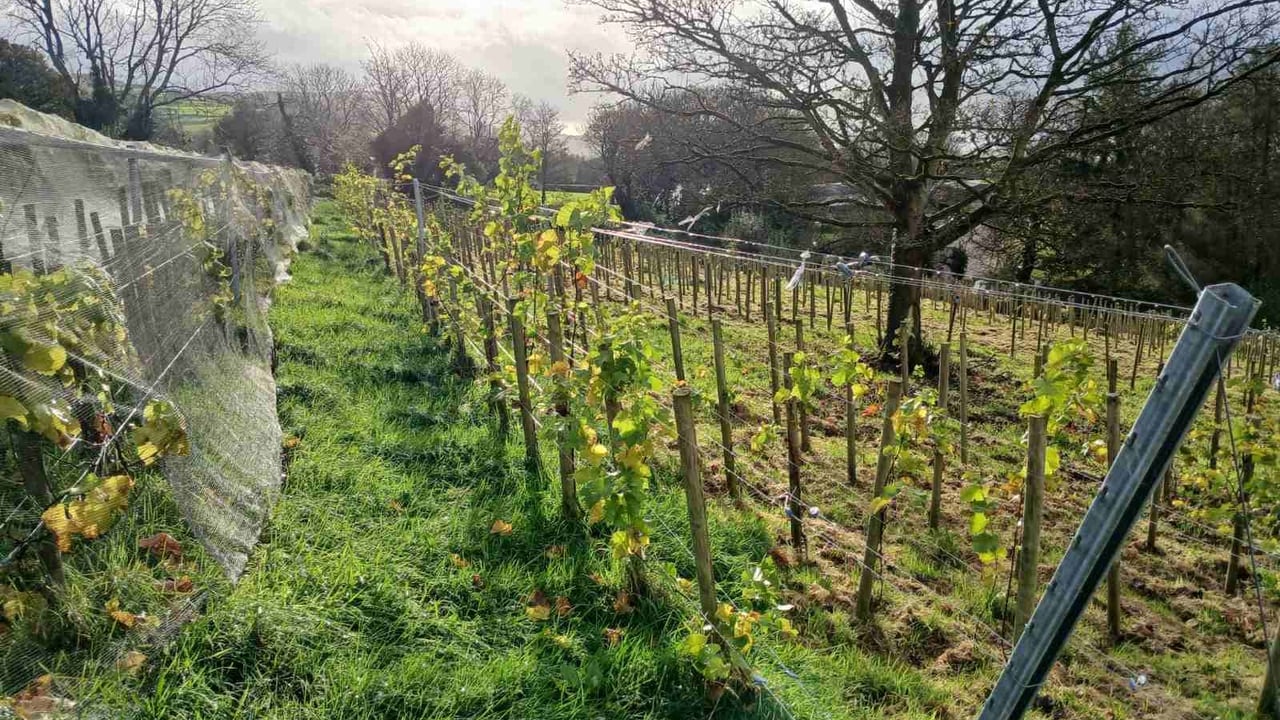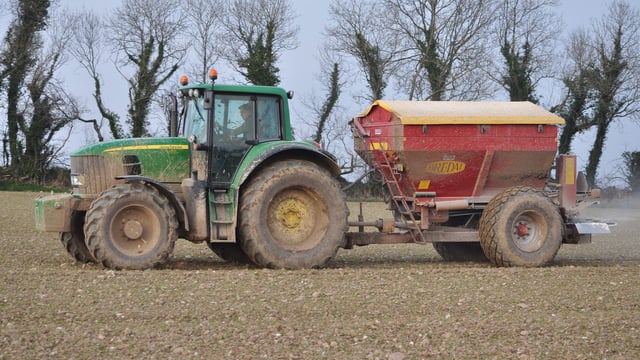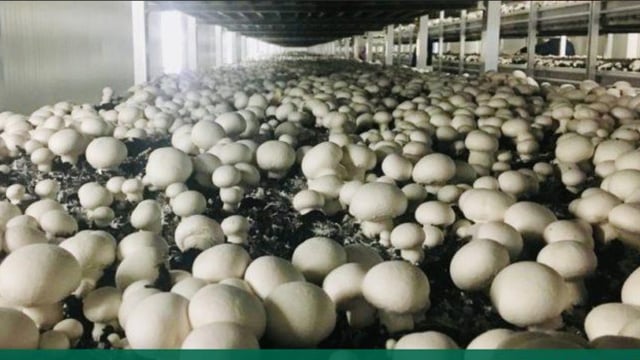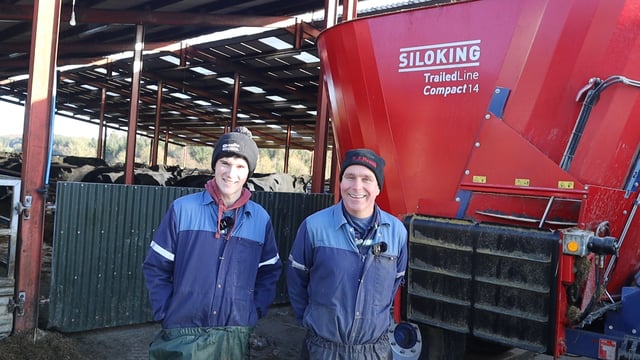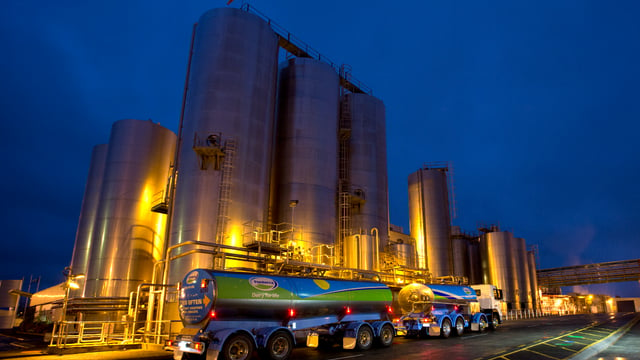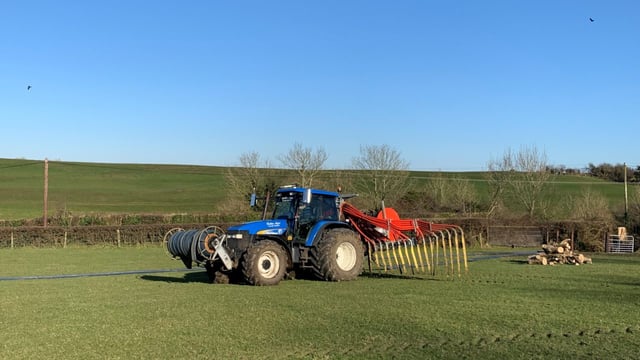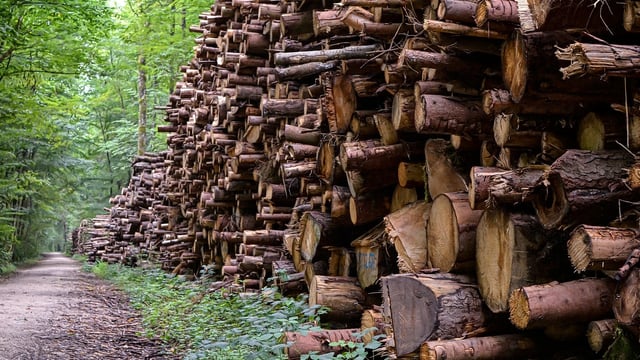Tipperary wine producer hails ethical solution to deter deer
Self-proclaimed hobby farmer and aspiring wine producer, Liam Barry, has claimed he has found a sustainable and ethical solution to deter deer from his fruit farm in Co. Tipperary.
The idea came about after years of torment from the animals at his Nenagh farm.
Keen to return to his roots and escape city life, Barry purchased 27ac around his 2ac family homestead, when he returned home to Ireland with his young family in 2018.
He had previously spent 30 years working in the banking industry abroad.
Inspired by the small-scale, locally-produced cider and wine culture of Switzerland and Germany, Barry purchased the land with the initial intent of growing an orchard and commercially producing alcohol from it down the line.
However, after learning of the blossoming wine industry in Ireland, he soon changed direction, planting a vineyard in its place.
Liam Barry told Agriland: "I'll be honest, I happen to like all alcoholic drinks, I'm not too different, I think, to a lot of Irish people that way, but I have an obsession with wine.
"When I first came home, I never thought it would even be possible to produce wine in Ireland, but sometimes you start a venture and you don't know where it's really going to end up."
Deer problem
Within the first three months of planting his newly purchased land, Barry discovered he had a "big deer problem" to contend with, which quickly hampered his ambitions.
"Quite literally, as soon as we walked out of the field, the deer walked in. I was pulling my hair out because of all the issues we had with them," he added.
Barry trialled a number of innovative methods, or what he prefers to call "popular myths" in his attempts to expel the deer from his land.
He had learned about these methods through a combination of extensive online research and recommendations from Facebook groups battling similar issues.
"I spoke to quite a number of people. I joined a lot of Facebook groups, and I tried everything that everybody suggested. We hung soap from trees. I got bales of dog hair and laid it around the perimeter of the land," he continued.
"I even used human hair. One Saturday, I went around to 10 ladies salons and barbers in Nenagh to collect all their hair and we then tied it to wooden posts in the field, because deterring deer is all about scent, but it didn't work, it had zero effect.
"I brought in a mobile electric fence from New Zealand, because we thought it would be cheaper than putting down a fixed fence," he said.
While the fence was "semi-successful" in the initial stages, it required a lot of maintenance, and would often short circuit when grass levels grew too high around its proximity. Eventually, the deer outsmarted the fence too, leaving Barry even more perplexed.
"Deer can be very clever creatures, and a deer can jump 8ft high, from a standing position. They don't mind if their legs get caught, let's say in the top wire or if it clips off them, their momentum will carry them over," he added
"And vines are expensive. When deer get in, they can easily destroy 1,000 vines in the night - that's €3,000 worth of damages.
"The other thing is, during the rutting season, the male or the stag will actually go for you, and a red deer is a huge animal, so there's a question of safety from that perspective too.
"We were almost tempted to sell the land and look at buying elsewhere because it was such a big problem," Barry admitted.
Solution
It was not until Barry mentioned his plight to one of his German vine suppliers three years ago, that he finally discovered his saving grace. He was pointed in the direction of a little-known German producer of an organic liquid deer repellent, named Stunk.
"When Germans tell you something works, I tend to take them at their word," he explained.
Barry initially imported two bottle of the substance, which he administered sporadically onto wooden posts throughout his vineyard. From its very first application, Barry noticed an immediate drop-off in damage to his vines.
Impressed with the efficacy of the product, Barry has since purchased the trading rights to sell and distribute the deterrent, which he intends to rename, throughout Ireland.
He believes it will offer an ethical solution to farmers who are plagued by overpopulation of deer and their correlating high TB transmission risk factor.
"I want to coexist with them [deer], but I'm also a businessperson. Much like any dairy farmer, you have to make a return on your investment and you have to make a living," he explained.
Now that Barry's days of battling deer have passed, his vines are reportedly "really flourishing", and he looks forward to a prosperous year ahead in what he described as the "up-and-coming" Irish wine industry.
With two consecutive wet summers behind him, Barry is also hoping his newfound good luck will translate into a dry summer ahead, which he will need to achieve his target of producing 100-150 bottles of Tipperary's finest wine.

